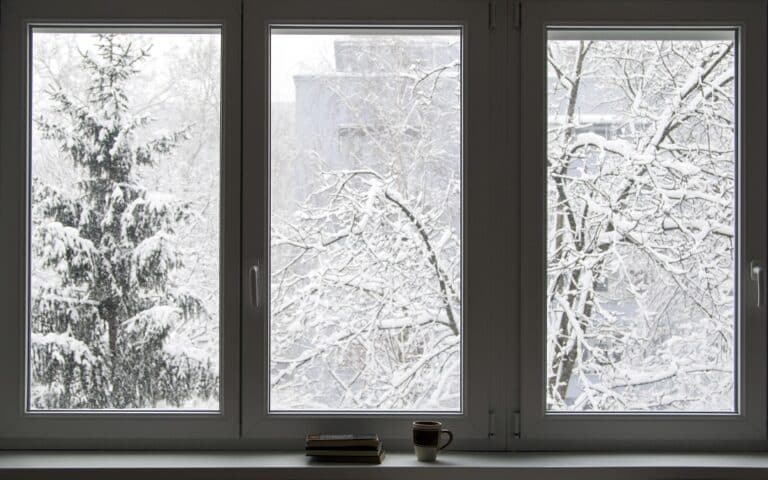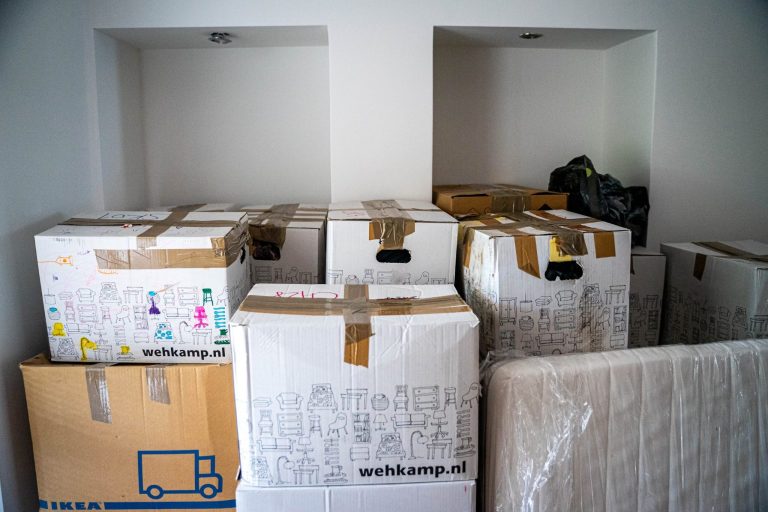Imagine a crisp fall breeze whispering through your newly installed windows, carrying with it the promise of cozy nights and lower energy bills. Or perhaps you envision the golden rays of summer sunshine warming your home, seamlessly streaming through your gleaming, energy-efficient replacements.
Replacing your windows is an investment that can significantly enhance your home’s comfort and energy efficiency, but the timing of the installation plays a crucial role.
In a country as vast and diverse as Canada, with climates ranging from mild coastal breezes to bone-chilling arctic winds, choosing the right season for window replacement becomes a critical decision.
This guide will be your personal conductor, guiding you through the pros and cons of replacing windows in different seasons across Canada. We’ll explore how weather conditions can affect costs, installation efficiency, and ultimately, the overall success of your window replacement project.
Understanding the Canadian Climate: A Tapestry of Seasons

Spring showers, for instance, can lead to delays, while scorching summer heat might pose challenges for installers and even affect the performance of sealants. Understanding the seasonal nuances of your region is key to making an informed decision about window replacement timing.
Spring: A Season of Renewal (But Watch Out for April Showers!)
Spring beckons with the promise of mild temperatures and longer days. Here’s a closer look at the pros and cons of replacing windows during this season:
Pros:
Comfortable Weather: Pleasant temperatures provide ideal working conditions for installers, ensuring a smooth and efficient installation process.
Preparation for Summer: New windows with improved insulation can help you beat the upcoming heat and keep your energy bills in check.
Increased Availability: Window replacement companies often experience a lull in winter and may have more open slots in their schedules during spring.
Cons:
Unpredictable Weather: Spring showers or even late snowstorms can throw a wrench into the project schedule, causing delays.
Higher Demand: As many homeowners opt for spring replacements due to pleasant weather, scheduling an appointment might be harder.
Summer: Soaking Up the Sun (But Not Too Much!)

Pros:
Stable Weather: Long stretches of sunny days offer ideal conditions for installation, minimizing the risk of weather-related delays.
Energy Efficiency: You’ll experience immediate benefits from improved insulation, leading to lower cooling costs during the hottest months.
Flexible Schedules: Extended daylight hours provide more flexibility for installers to work longer days, potentially speeding up the project completion.
Cons:
High Demand: Summer is peak season for window replacement, leading to potentially higher prices and longer wait times for scheduling.
Heat Issues: Extremely hot days can be challenging for installers, potentially impacting their productivity. Additionally, intense heat can affect the curing process of window sealants.
Fall: A Season of Transition (Embrace the Cozy Comfort!)
As summer wanes and leaves begin to change, fall offers another window of opportunity (pun intended!). Let’s explore the advantages and disadvantages of fall window replacement:
Pros:
Cooler Temperatures: Comfortable working conditions for installers similar to spring, but with less rain compared to spring showers.
Energy Savings: New windows enhance insulation just before the arrival of winter, leading to improved energy efficiency and lower heating costs.
Potential Discounts: Window replacement companies may offer end-of-season discounts to attract last-minute projects.
Cons:
Shorter Days: Daylight hours become progressively shorter as fall progresses, potentially limiting the installers’ working window and extending project timelines.
Weather Uncertainty: Early snow or sudden cold snaps can disrupt installation schedules and delay project completion.
Winter: Off-Season Benefits (But Prepare for the Cold!)
While many might consider winter a time to stay indoors with a warm beverage, some window replacement companies can actually operate during this season. Let’s explore the potential benefits and challenges:
Pros:
Lower Demand: Off-peak season can translate to lower prices and more flexible scheduling compared to the busier spring and summer months.
Immediate Benefits: Improved insulation reaps immediate benefits during the coldest months, leading to significant energy savings on heating costs.
Experienced Installers: Companies that operate through winters tend to have highly skilled and experienced crews who are comfortable working in cold conditions.
Cons:
Cold Weather Challenges: Harsh winter conditions can make installation a physically demanding task for installers, potentially impacting their efficiency. Additionally, working with frozen materials and applying sealants can be more difficult.
Potential Delays: Heavy snowfall and icy conditions can lead to project delays and affect the safe handling of window materials during transportation and installation.
Sealant Performance: Extremely cold temperatures can impact the effectiveness of adhesives and sealants used during window installation, potentially compromising the long-term performance of the windows.
Regional Considerations: A Climate Concerto Across Canada

Eastern Canada:
Provinces like Ontario, Quebec, and the Maritimes experience hot, humid summers and cold winters with significant snowfall. Spring and fall offer the most suitable windows for window replacement due to moderate temperatures and less precipitation. However, be prepared for potential rain showers in spring and early snow in fall.
Western Canada:
British Columbia boasts milder winters with less snowfall compared to Eastern Canada. Spring and fall remain the preferred seasons due to comfortable working conditions. However, coastal areas in British Columbia experience higher rainfall year-round, so factor in this possibility when scheduling your project.
Northern Canada:
Yukon, Northwest Territories, and Nunavut experience extreme cold temperatures and limited daylight hours in winter.
Window replacement projects are typically best undertaken during the short summer window when temperatures rise above freezing. However, the shorter daylight hours might limit the available time for installation. Consulting with experienced local contractors is crucial in these regions.
Timing and Cost Efficiency: A Delicate Balance
Choosing the right season for window replacement can significantly impact your project’s overall cost efficiency. Here are some key considerations:
Off-Peak Discounts: Scheduling your window replacement during the off-seasons (winter or fall) can lead to potential cost savings due to lower demand and available discounts offered by window companies.
Energy Savings: While the upfront cost of new windows might seem significant, the long-term energy savings due to improved insulation can be substantial. Consider the payback period when evaluating the cost-benefit analysis of different installation seasons.
Contractor Availability: Peak seasons (spring and summer) might have limited availability for top-rated window replacement companies. Choosing an off-season window can make it easier to schedule a project with a reputable and experienced team.
Practical Tips for a Smooth Seasonal Symphony

Plan Ahead: Don’t wait until the last minute. Early planning allows you to research companies, compare quotes, and schedule your project during a time that aligns with your needs and the recommended season for your region.
Weatherproofing: Discuss temporary weatherproofing solutions with your chosen window replacement company, especially if your project spans across seasons with potential for rain or snow.
Flexible Scheduling: Be prepared for potential delays due to unpredictable weather conditions, particularly during spring and fall. Communicate openly with your contractor to adjust the schedule as needed.
Conclusion: The Final Notes of Your Window Replacement Project
As we’ve explored, there’s no single “best” season for window replacement in Canada. Each season offers its own set of advantages and disadvantages, and the optimal choice depends on factors such as your regional climate, budget considerations, and personal preferences.
Here’s a quick recap:
Spring: Offers comfortable working conditions but can be unpredictable with rain or snow. Schedule early to avoid peak demand.
Summer: Ideal weather for installation, but expect higher prices and longer wait times.
Fall: Potential for discounts and comfortable temperatures, but shorter days and early snow can pose challenges.
Winter: Offers lower costs and immediate energy savings, but requires experienced installers and comes with challenges due to cold weather.
Ultimately, the best time for window replacement is the time that works best for you and your specific situation. Consider all the factors discussed in this guide and weigh them against your regional climate and personal priorities.
Don’t hesitate to consult with a reputable window replacement professional! They can assess your needs, recommend suitable materials for your windows, and advise on the most suitable season for installation in your region. They can also provide you with a tailored quote and answer any questions you may have.
Additional Resources:
Contact a Professional Consultations: For those looking for a reliable and experienced company, consider contacting a Window Replacement Manufacturer for a consultation. They can help you find the best time and solution for your specific needs.
Frequently Asked Questions About Seasonal Window Replacement
Choosing the right time for your window replacement project is an important decision. To ensure you have all the information you need, let’s delve into some frequently asked questions about seasonal window replacement:
Q: Is it ever too cold to replace windows?
While extremely cold temperatures can present challenges, some experienced window replacement companies can operate throughout winter. However, consider the trade-offs.
Cold weather can make installation more difficult and potentially affect the curing process of sealants. Consulting with a local contractor who has experience working in winter conditions is crucial.
Q: What happens if it rains during my window replacement?
Reputable window replacement companies take precautions to minimize the impact of rain. They may use temporary weatherproofing solutions to protect the interior of your home while the new windows are installed. Discuss these options with your chosen contractor beforehand.
Q: How long will my window replacement project take?
The project duration depends on several factors, including the size and complexity of your home, the number of windows being replaced, and the chosen season. Spring and summer typically offer faster turnaround times due to longer daylight hours. However, always discuss the estimated timeline with your contractor and factor in potential weather-related delays.
Q: What are some signs that my windows need replacing?
Here are some indicators that your windows might be past their prime:
Drafts: Feeling cold drafts around windows, especially during winter, is a telltale sign of poor insulation.
Condensation: Excessive condensation forming on the inside of your windows can lead to mold growth and signal inadequate insulation.
Sticking Windows: Windows that are difficult to open or close due to warping or buildup of dirt can be frustrating and energy-wasting.
Visible Damage: Cracked, chipped, or rotten window frames are clear signs of deterioration and need for replacement.
Q: How can I finance my window replacement project?
Many window replacement companies offer financing options to help make the project more affordable. You can also explore options like home equity loans or credit cards with low introductory interest rates. However, always carefully consider the financial implications and choose a financing option that aligns with your budget and repayment capabilities.
By understanding the seasonal nuances and addressing these common concerns, you can confidently choose the best time for your window replacement project. Remember, new windows are an investment that can enhance your home’s comfort, energy efficiency, and curb appeal for years to come. So, breathe easy, make an informed decision, and welcome a fresh wave of possibilities into your home!









